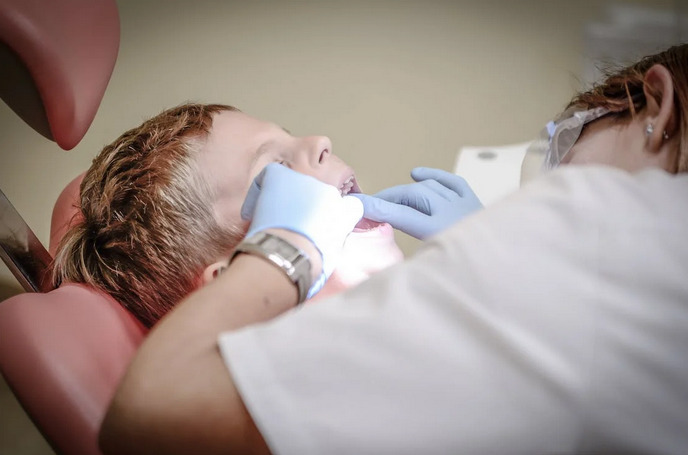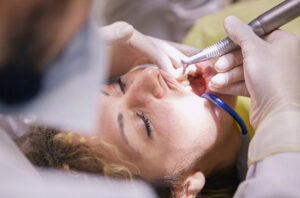Are you considering dental surgery but feeling overwhelmed by the multitude of procedures available? Look no further as we delve into dentistry and explore the most common types of dental surgery. From wisdom teeth extraction to dental implants, prepare to unravel the mysteries behind these transformative procedures that can greatly enhance your oral health and overall well-being. Whether you’re a curious reader or someone needing guidance, join us on this enlightening journey as we uncover the fascinating realm of dental surgery.
Tooth Extraction

Tooth extraction is a common dental surgical procedure performed when a tooth is severely damaged, decayed, or impacted. It involves the removal of a tooth from its socket in the jawbone. Extractions may also be necessary for orthodontic purposes or to create space for dentures or dental implants.
Dentists typically use local anesthesia to numb the area before extracting the tooth, ensuring minimal discomfort for the patient. Following tooth extraction, proper aftercare instructions are provided to promote healing and prevent complications. Dental clinic in Stafford can offer you additional information on tooth extraction and aftercare.
Dental Implants
Dental implants are a popular and effective tooth replacement option for individuals with missing teeth. This surgical procedure involves the placement of a titanium implant into the jawbone, which acts as an artificial tooth root. Over time, the implant integrates with the bone, providing a stable foundation for a crown or bridge to be attached.
Dental implants offer numerous benefits, including improved chewing ability, enhanced aesthetics, and preservation of bone structure. The implant placement process may require multiple stages and healing periods, ensuring optimal success and long-term stability.
Wisdom Teeth Removal
 Wisdom teeth, also known as third molars, often emerge in late adolescence or early adulthood. However, due to limited space in the mouth, they can become impacted or grow at an angle, causing pain, infection, and potential damage to adjacent teeth.
Wisdom teeth, also known as third molars, often emerge in late adolescence or early adulthood. However, due to limited space in the mouth, they can become impacted or grow at an angle, causing pain, infection, and potential damage to adjacent teeth.
Wisdom teeth removal is a surgical procedure to extract one or more problematic teeth. Oral surgeons evaluate the position and condition of the wisdom teeth using X-rays and then perform the extraction, often under local or general anesthesia. Prompt removal of impacted wisdom teeth can prevent complications and maintain optimal oral health.
Gum Surgery (Periodontal Surgery)
Gum surgery, also known as periodontal surgery, is performed to treat gum disease and restore the health of the gums and supporting tissues. It involves accessing the gum tissue and bone to remove bacteria, reduce pocket depths, and repair damage caused by periodontitis.
Gum surgery can involve procedures such as gingivectomy (removal of diseased gum tissue), gum grafting (replacing receded gums), and guided tissue regeneration (stimulating new bone and tissue growth). These surgeries aim to eliminate infection, reduce gum inflammation, and promote gum and bone reattachment, ultimately improving the overall health and stability of the teeth.
Jaw Surgery (Orthognathic Surgery)
 Orthognathic surgery is a corrective procedure to address significant jaw irregularities affecting bite function, facial aesthetics, and speech. This surgical treatment involves repositioning the upper jaw (maxilla), lower jaw (mandible), or both to achieve better alignment and balance. Orthodontic treatment often precedes and follows orthognathic surgery to ensure optimal results. Jaw surgery can provide numerous benefits, including improved bite function, enhanced facial symmetry, and resolution of breathing difficulties associated with jaw abnormalities.
Orthognathic surgery is a corrective procedure to address significant jaw irregularities affecting bite function, facial aesthetics, and speech. This surgical treatment involves repositioning the upper jaw (maxilla), lower jaw (mandible), or both to achieve better alignment and balance. Orthodontic treatment often precedes and follows orthognathic surgery to ensure optimal results. Jaw surgery can provide numerous benefits, including improved bite function, enhanced facial symmetry, and resolution of breathing difficulties associated with jaw abnormalities.
Dental surgery addresses various dental and oral health issues, ranging from tooth extraction to complex jaw realignment procedures. These surgeries are performed by skilled oral and maxillofacial surgeons and are tailored to meet each patient’s specific needs. By understanding the common types of dental surgery and their purposes, individuals can make informed decisions about their oral health and seek the appropriate treatments when necessary.

